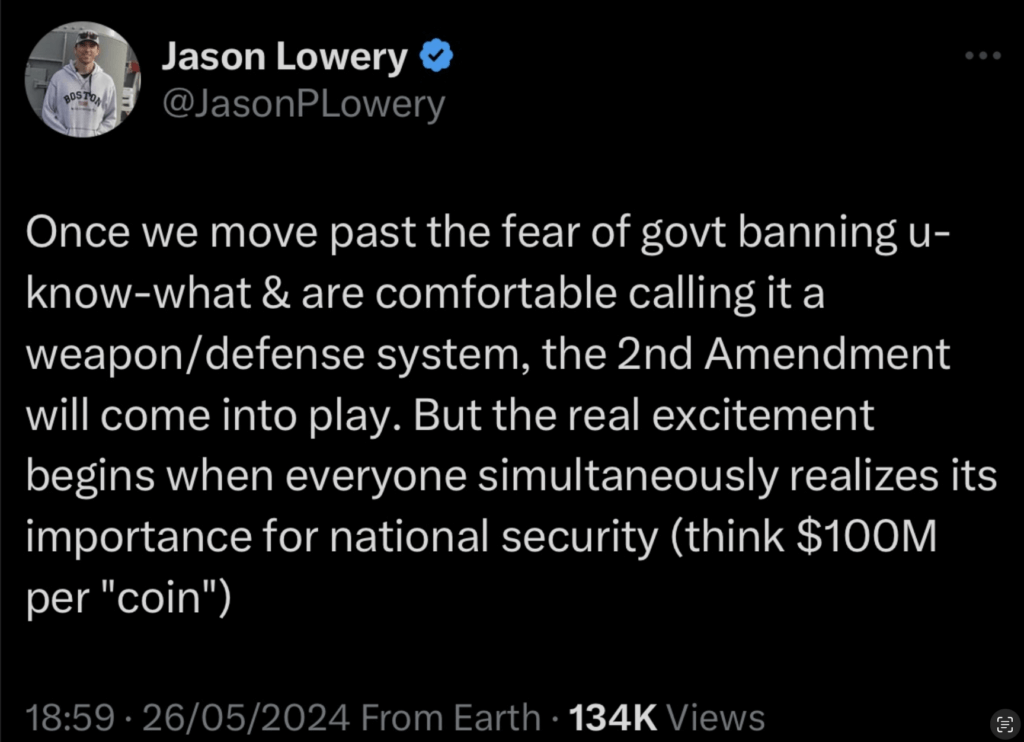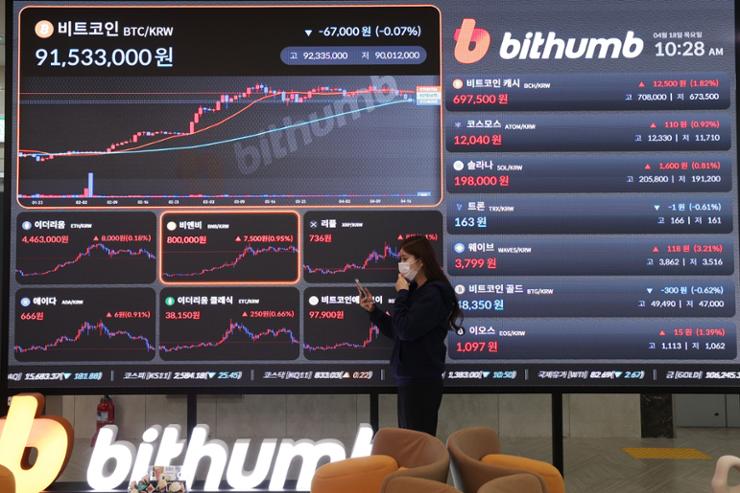Bitcoin: The New Frontline in National Security?
In a bold assertion that is raising eyebrows across the cryptocurrency and defense sectors alike, US Space Force Major Jason Lowery has articulated a perspective that positions Bitcoin not just as a digital currency, but as a potential weapon system crucial for national security. As a national defense fellow at MIT, Lowery’s insights not only highlight Bitcoin’s strategic importance but also suggest that its fate may significantly influence the future of cyber defense.
Bitcoin as a Deterrent
Lowery shares his vision that Bitcoin’s proof-of-work consensus mechanism could act as a substantial deterrent against cyberattacks. He draws a parallel between Bitcoin and traditional military assets, asserting that both serve the purpose of deterring hostile actions. In a now-deleted post on social media, he expressed optimism that if the public could clear the air of misgivings surrounding government regulations on Bitcoin, its role as a defensive mechanism would soon become evident.
“Bitcoin, as a resource-intensive entity, could alter how we perceive and tackle cyber threats, reshaping our national defense strategy in the digital realm.”
Lowery anticipates that this newfound understanding could push the value of Bitcoin unprecedented heights—according to his projections, the value could reach an astounding $100 million per coin.
 The potential of Bitcoin in national security discussions is gaining traction.
The potential of Bitcoin in national security discussions is gaining traction.
Transforming Power Grids into a Cybersecurity Asset
Digging deeper into his claims, Lowery envisions Bitcoin as a transformative force capable of converting the global electric power grid into what he describes as a “macrochip.” This concept suggests that the decentralized and costly nature of Bitcoin mining could act as a physical barrier against malicious actors, effectively securing data flow on the internet. If implemented, this strategy could lead to a cybersecurity revolution, reaffirming the United States’ position as a formidable player on the global stage.
Lowery elaborates on these ideas in his book, Softwar: A Novel Theory on Power Projection and the National Strategic Significance of Bitcoin. Although the book faced a mysterious removal from circulation at one point, it is currently available on platforms like Amazon. The abrupt withdrawal has added a layer of intrigue to Lowery’s assertions about blockchain technology’s relevance to national security.
 Could Bitcoin truly redefine national security strategies?
Could Bitcoin truly redefine national security strategies?
A Call to Action for the Pentagon
Lowery does not stop at merely envisioning possibilities; he is actively calling on the US Department of Defense to investigate the national strategic importance of proof-of-work systems. He argues that the unique operational characteristics of Bitcoin could deter potential adversaries from launching cyberattacks, grounded in the economic rationale that maintaining such a network incurs significant costs, similar to how military deterrence functions.
This advocacy runs counter to the current regulatory framework where a substantial emphasis has been placed on litigation and control over support and integration of digital assets. As the US navigates this intricate landscape, the broader implications of Lowery’s stance could become a flashpoint in discussions about the future of bitcoin and digital currencies at large.
The World Watches
As the debate surrounding Bitcoin’s relevance in national defense gains momentum, it is clear that the discussion transcends cryptocurrency. The intertwining of finance and defense strategies could redefine how nations perceive and engage with digital assets on the geopolitical stage. With countries worldwide looking for innovative ways to secure their digital infrastructures, Bitcoin may soon find itself at the core of a new wave of national security strategies.
In conclusion, Major Lowery’s provocative claims bring to light a future where cryptocurrency and national defense could converge in unprecedented ways. As the global security environment evolves, the insights and implications from such discussions will be vital in shaping not only the cryptocurrency market but also the international defense landscape altogether.


 Photo by
Photo by 












